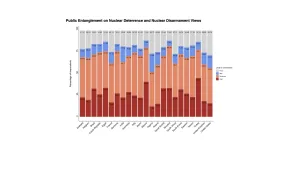
Currently, the Nuclear Suppliers Group (NSG) is considering India’s application for membership. In this context NSG members are reportedly discussing membership criteria for states not party to the Nuclear Nonproliferation Treaty (NPT), including a requirement for clear and strict separation of current and future civilian nuclear facilities from non-civilian nuclear facilities. In this paper, John Carlson examines India’s Separation Plan and safeguards agreement with the International Atomic Energy Agency (IAEA), and shows that they do not meet this standard – that current arrangements create an unverified grey zone between military and civilian material, and are not sufficient to verify that India is not using safeguarded material to benefit military purposes. In light of these deficiencies, it seems unlikely there will be consensus within the NSG to admit India, unless the Separation Plan and the agreement are amended. The situation also has implications for Pakistan, which has raised concern about the strategic threat posed by India’s unsafeguarded materials and facilities and is also seeking to join the NSG. The paper discusses steps that should be taken to create a clear and verifiable separation between civilian and military nuclear materials and activities in India and to protect the integrity of IAEA safeguards.
John Carlson, “India–IAEA Safeguards Agreement: Not Fit for Purpose,” Discussion Paper
(Cambridge, MA: Project on Managing the Atom, Belfer Center for Science and International
Affairs, Harvard Kennedy School, January 2018).





